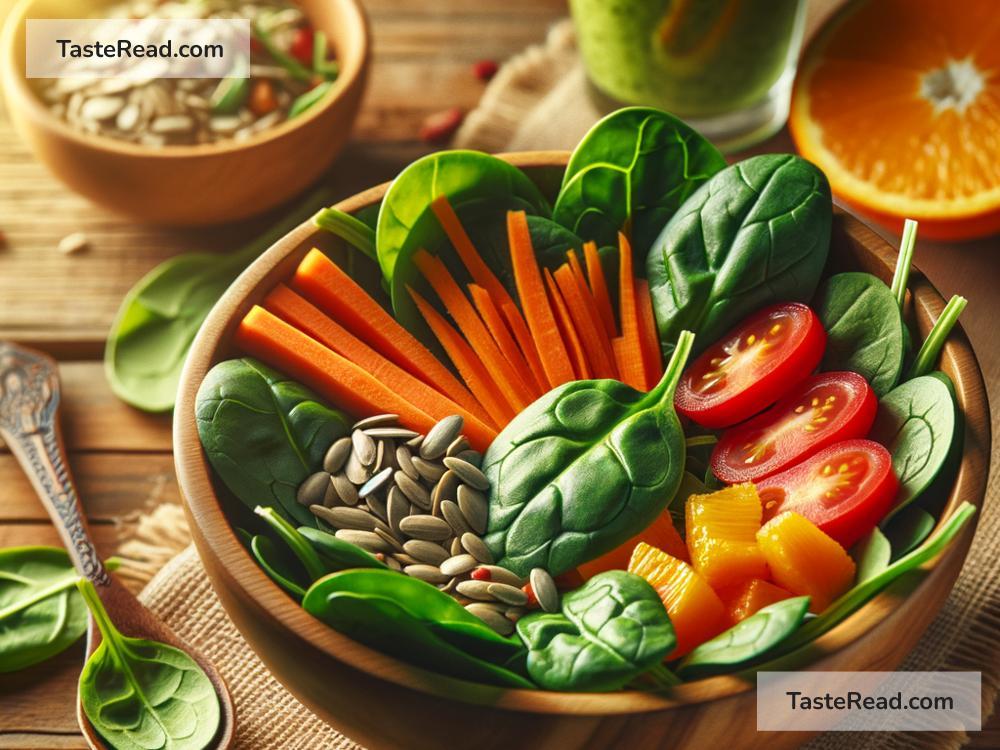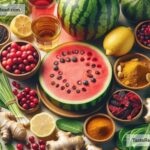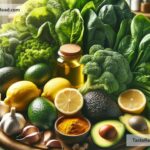Foods That Promote Lens Transparency: Protect Your Eyes Naturally
When it comes to eye health, we often focus on our vision clarity and how well we can see objects near or far. However, we forget about an important part of our eyes—the lenses. The lens is a transparent, flexible part of our eye that helps focus light onto the retina so we can see clearly. Over time, factors like aging, exposure to sunlight, smoking, poor diet, and general health issues can cause the lens to become cloudy, leading to conditions like cataracts. But there’s good news! Certain foods can help keep the lens healthy and transparent for years to come. In this article, we’ll discuss some foods that promote lens transparency—and why they’re beneficial for your eye health.
Why Does Lens Transparency Matter?
Your eye’s lens needs to be clear so that light can pass through and focus correctly on the retina. When the lens becomes cloudy—like foggy glass—it blocks or scatters light, making vision blurry. Cataracts are a common cause of cloudy lenses, especially in older people. Maintaining lens transparency is one way to protect your eyes from developing cataracts or other vision issues as you age.
The solution? Healthy eating! Nutrition plays a vital role in keeping your eyes healthy, especially the lens. Certain foods are packed with vitamins, minerals, and antioxidants that fight oxidative stress, prevent damage to tissue, and reduce the risk of cataracts.
Best Foods for Lens Transparency
Let’s explore some of the best foods for protecting and boosting the health of your lens.
1. Leafy Green Vegetables
Spinach, kale, Swiss chard, and collard greens are champions for eye health. They are rich in lutein and zeaxanthin—important antioxidants that protect the lenses of your eyes. These nutrients act like natural sunglasses, filtering harmful UV rays and blocking light-induced damage. They also reduce oxidative stress, which can cloud your lenses over time.
How to Add Them to Your Diet: Make green smoothies, prepare salads, or sauté them with olive oil and garlic for a delicious side dish.
2. Carrots
Carrots are famous for their ability to enhance vision, and they contribute to lens transparency, too. They are loaded with beta-carotene, which your body converts into vitamin A. Vitamin A is essential for eye health as it strengthens eye tissues and prevents dryness. It also helps prevent oxidative damage that might otherwise harm the lens over time.
How to Add Them to Your Diet: Snack on baby carrots, make a hearty carrot soup, or add shredded carrots to salads and sandwiches.
3. Citrus Fruits
Oranges, lemons, grapefruits, and limes are rich in vitamin C, a powerful antioxidant that fights free radicals. Vitamin C is particularly important for keeping the lens clear and flexible because it protects the lens proteins from damage. When lens proteins are preserved, your lens stays transparent and functional.
How to Add Them to Your Diet: Drink a glass of fresh orange juice, add lemon slices to your water, or enjoy grapefruit for breakfast.
4. Fish
Fatty fish like salmon, mackerel, tuna, and sardines are high in omega-3 fatty acids, which are great for eye health. Omega-3s promote hydration and reduce inflammation, lowering the risk of lens degeneration. They also improve blood circulation around the eyes, keeping the lens nourished and healthy.
How to Add Them to Your Diet: Grill or bake salmon as a main dish or add tuna to salads. Include fish in your meals at least twice a week.
5. Eggs
Eggs contain both lutein and zeaxanthin, which help protect the lens by filtering harmful blue light and reducing oxidative damage. In addition, eggs provide high-quality protein, which supports the overall structure of the eye.
How to Add Them to Your Diet: Have eggs for breakfast, make omelets stuffed with spinach, or prepare boiled eggs as snacks.
6. Nuts and Seeds
Almonds, walnuts, sunflower seeds, and chia seeds are excellent sources of vitamin E, another antioxidant that protects your eyes from harmful oxidative stress. Vitamin E works to neutralize free radicals that can damage the proteins in your lens and make them cloudy.
How to Add Them to Your Diet: Snack on almonds, sprinkle sunflower seeds over salads, or blend chia seeds into your smoothies.
7. Colorful Bell Peppers
Red, yellow, and orange bell peppers are loaded with vitamin C and other antioxidants. These vibrant vegetables protect your lens from age-related damage and light exposure. Plus, they’re super versatile in dishes!
How to Add Them to Your Diet: Chop them into salads, stir-fry with lean protein, or roast them as a delicious side.
Other Tips for Protecting Lens Transparency
While diet is important, it’s not the only factor influencing the health of your lens. Here are a few additional tips to protect your eye health:
– Wear sunglasses: Protect your lenses from harmful UV rays by wearing sunglasses outdoors.
– Stay hydrated: Drink plenty of water to keep your eyes moist and well-nourished.
– Quit smoking: Smoking damages eye tissues and accelerates oxidative stress.
– Manage health conditions: Conditions like diabetes can harm your eyes over time, so keeping them under control is vital.
Conclusion
Your eyes are one of your most valuable senses, and the lenses within them play a critical role in helping you see the world clearly. By adding foods like leafy greens, carrots, citrus fruits, fish, eggs, nuts and seeds, and bell peppers to your diet, you can promote lens transparency and reduce the risk of cataract formation later in life. Pair healthy eating with good lifestyle choices, such as wearing UV-protective sunglasses and quitting smoking, for even better results.
Take care of your eyes—because your vision is worth it!


